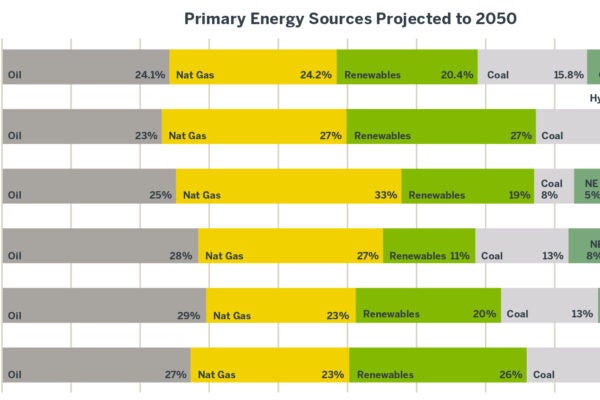Ethics in the Workplace
Encouraging competition among co-workers can backfire on organizations, causing inter-office conflict
By Jeremy Simon

Workers looking to earn a bonus may have more in common with candy-crazed children than those adult employees would like to admit.
People of all professions and ages, from teachers and mortgage brokers to three-year-olds, may behave unethically when presented with tempting rewards, says researcher Lamar Pierce.
“Kids learn and figure out how to game incentive systems by the time they’re about two or three,” Pierce says. “Two- and three-year-olds, if you give them a high-powered incentive system” — say, jellybeans as a reward for successful potty training or not hitting their siblings — “they’ll figure out how to manipulate the system in order to get more jellybeans,” he says. And if toddlers have this down, then adults must, too.
Bonuses Act Like Jellybeans
So while introducing employee bonuses for outstanding performance may sound like an excellent way to encourage hard work, such bonuses can actually create problems for companies: Workers who know their pay is based on specific results may do whatever is necessary to improve those results.
As a manager, “you just want to think really carefully about all the ways that people might possibly respond to a policy change,” he explains. Otherwise, there can be unintended consequences when new policies are implemented.
In the case of teachers who are incentivized to improve student performance on standardized tests, there may be a temptation to “teach to the test,” Pierce says. In addition, teachers may stop cooperating with each other or even become negatively competitive.
“They try to make sure that they have the best students, so students with learning disabilities get shuttled off into other places,” Pierce says. “You get all those same sort of bad behaviors that you get with mortgage brokers or car salesmen or anybody else.”

What Companies Can Do
How should organizations prevent such problems? To start with, Pierce’s work, which examines how organizations can encourage workers to behave both productively and ethically, suggests that management should implement policies with eyes and ears open to potential missteps.
“If we simply preach to people to do the right thing, then we end up with Pollyannaish view,” he says. “That’s always a risk in teaching ethics — whether business ethics or anything else — that we come to believe that if we simply preach ethical codes then that’s going to solve everything.”
Therefore, it’s important to acknowledge that people sometimes go astray. The key is to anticipate some of the reasons why and then adjust policies accordingly.
For instance, instituting scale-based pay systems, which assign salaries based on a worker’s title or years of service, are one way to reduce conflict among co-workers because they take the subjectivity out of how much people are paid. (Still, Pierce says that scaled wage systems aren’t perfect: Although they solve some problems, they also reduce worker effort and often attract low-effort employees.) As for bonuses, managers should consider an employee’s overall performance, not just their results on a single metric, when determining such payments.
Companies also need to regularly reiterate their ethics policies. “Otherwise, it’s really easy for us to forget and justify our behaviors when we’re exposed,” he says. “If you don’t continually remind people about that stuff they forget it and they start engaging in bad behavior.”
University honor codes are a type of ethics policy. “You can’t give students an honor code at the beginning of a semester and then think that solves the problem,” Pierce explains. Reminding students of the policy prior to exams, regularly enforcing the policy with penalties, and taking care not to incentivize intense competition are important follow-up steps that help level the playing field.
“In the end, students appreciate that because they like to know that they aren’t going to be forced to cheat by somebody else cheating,” he says. “You can see that in industry as well. Firms ultimately don’t want to be in a market where they can cheat and everybody else can cheat in a way that just leads them all to the same situation: a highly competitive market with lots of cheating.”
Put a Personal System in Place
Workers looking to keep themselves honest, meanwhile, can put their own personalized systems in place. It begins with knowing yourself and recognizing your own weaknesses, Pierce explains.
“I have friends who know that they don’t work hard if nobody’s watching them, so they implement strict policies that they always work with their door wide open, with their screen facing to the outside of their office,” he says. In other words, it’s hard to spend an entire day on Facebook when coworkers can easily see over your shoulder.
About this Post
Share:


